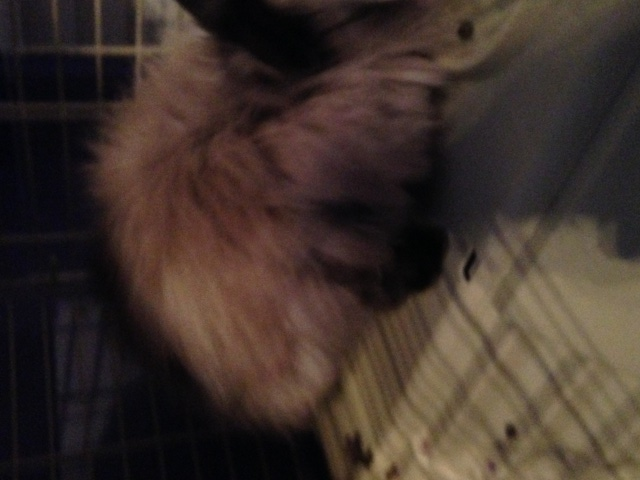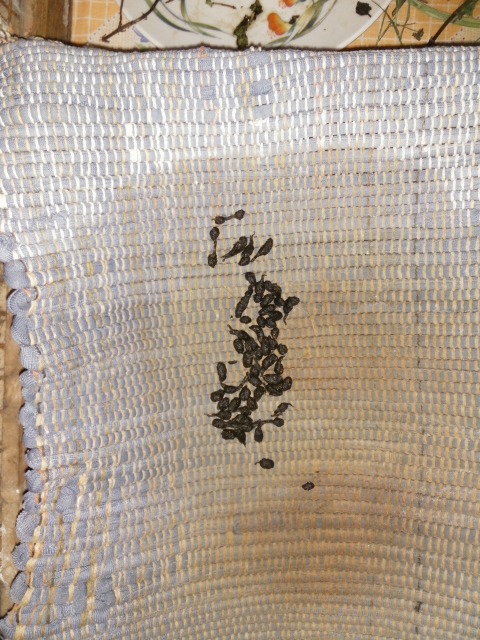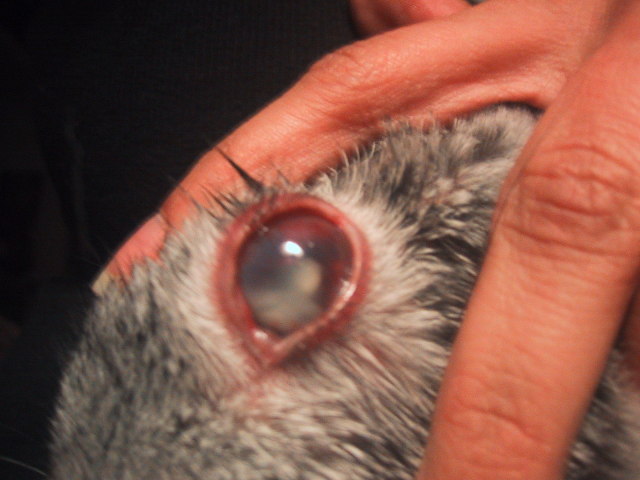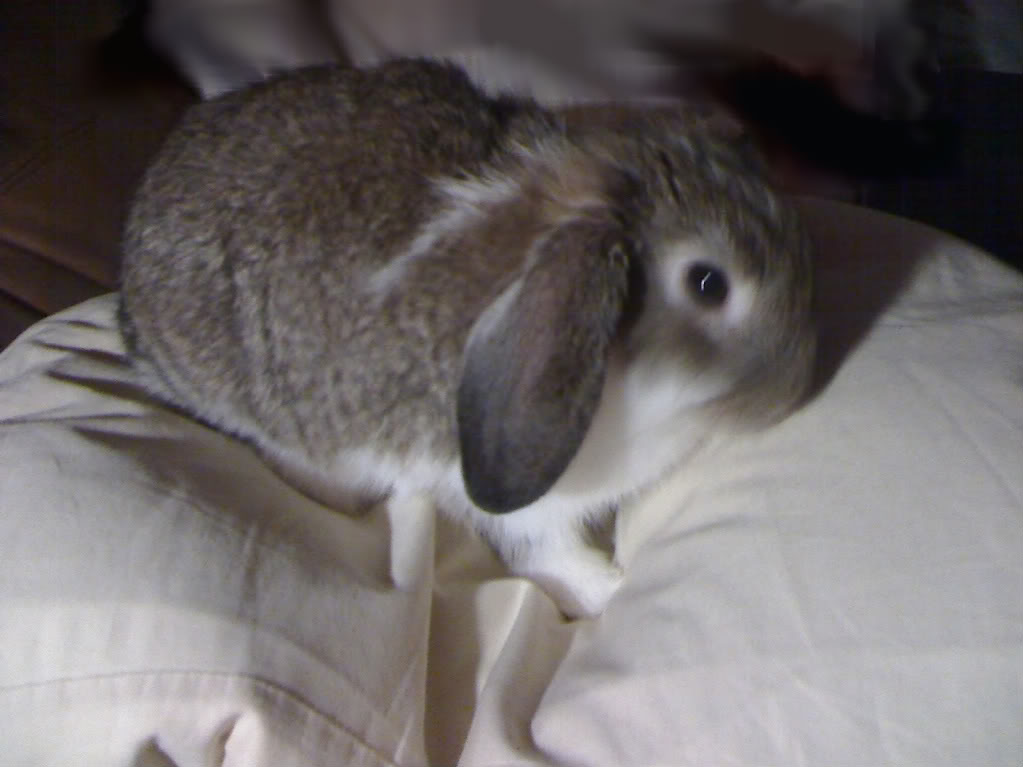QuestionHello--
Thank you in advance for your help--it has been difficult researching advice for my mini lop rabbit Sebastian. He is 5 years old--Developed a large abscess on his jaw 4 months ago, which was deemed to not be operable by the vet, due to the fact that it would come back.
I financially am unable to afford the surgery, which would place antibiotic beads in the abscess, and vets are also concerned with his age/anesthesia, so currently, he is being treated palliatively with oral abx and a probiotic (benebac)-1 week on, 2 weeks off.
The abscess has been drained twice, (he has tolerated this great), and has ruptured on its own 2 other times. He seems to be eating/drinking fine, and I have been trying to keep area clean. Should I be putting a warm compress on it? Is there anything over the counter topically that I could also put on the cyst? (Perhaps when it ruptures and opens). Just curious if there were any other ways to keep him comfortable, and keep the cysts at bay. Thanks so much!
Laur
AnswerHi Laur,
I'm so sorry to hear of the trouble that your mini lop is having with an abcessed jaw. These types of abcesses are not that uncommon in rabbits, but are often difficult to treat completely. It is not impossible though if your vet is willing to work with you and check into the new treatments that have been having great success! Until recently, the only treatment considered safe and completely effective is the surgery that your vet mentioned. Fortunately more research was done and there is a non-surgical and less-invasive treatment that is working well and may be able to help your mini lop. Clindamycin and Penicillin are the antibiotics that work best against the type of abcess that occurs in the jaw bone (called "osteomyelitis"), but unfortunately the oral forms of these can interfere with the very important gut bacteria in your rabbit's system and prevent him from consuming the cecotropes (night feces) that all rabbits need to keep them healthy. The injectable form of penicillin doesn't interfere with the gut, but doesn't last long enough to penetrate all the way into a bony abcess. The good news is that the latest research shows if you combine injectable penicillin with bicillin (Benzathine) the penicillin will stay in the body long enough to penetrate the bone and thick pus of the abcess. These injections need to be given every other day for several weeks in order to completely treat the entire infection. This treatment has become the first line of defense for rabbit-saavy vets and the results are coming back positive! Here's a link to an article you can print and bring to your vet, hopefuly he/she will work with you on this http://people.umass.edu/~jwmoore/bicillin/bicillin.htm
As for home care, you don't want to put any topical ointments or creams on the abcess for a couple of reasons: 1) they don't penetrate far enough into the tissue and bone to do any good and 2) you actually want the abcess to stay open and draining as long as possible to relieve the pain and pressure for the bunny. Warm compresses will actually encourage more bacterial growth and cause more swelling and pain so you'll want to avoid them too. Unfortunately there are no safe pain medications that can be given to rabbits, so the best way to treat at home is to keep the abcess open and draining as much as possible to relieve the pain/pressure that the built-up pus causes, and keep the area around the abcess as clean as possible with soap and water. Often a jaw abcess is caused by a bad tooth (you can't see them unless you can get bunny to open very wise, but rabbits actually have molars way back in their mouths that can get infected just like human teeth) so a softer diet is recommended if he is having trouble eating. I hope the antibiotic therapies work and that your mini lop is feeling better soon! I do agree with your vet that anesthesia is risky in an older rabbit (in all rabbits actually) and it would be best to avoid the surgery if possible. Best wishes!

 Lionhead rabbit breed colors
QuestionLionhead buck senior (
QUESTION: Believe
Lionhead rabbit breed colors
QuestionLionhead buck senior (
QUESTION: Believe
 Spencers Update!!!
Questionpoop
poop
QUESTION: Hi Dana Madam
Spencers Update!!!
Questionpoop
poop
QUESTION: Hi Dana Madam
 EXTREMELY concerning eye problem
QuestionTinkerbells Cloudy Ey
QUESTION: Dana,
M
EXTREMELY concerning eye problem
QuestionTinkerbells Cloudy Ey
QUESTION: Dana,
M
 Lionhead Bunny
QuestionDarling Cllover
QUESTION: 2 weeks ago my
Lionhead Bunny
QuestionDarling Cllover
QUESTION: 2 weeks ago my
 General Health Questions and a Squinty Eye
QuestionQUESTION: I have a few health questions after r
General Health Questions and a Squinty Eye
QuestionQUESTION: I have a few health questions after r